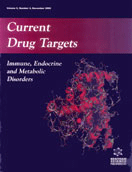Abstract
Immune cells and antibodies respectively play a role in the cell-mediated and humorous-mediated immune response to tumor cells, while tumor microenvironment (TME) and tumor cells in tumor tissue take many strategies to evade the host immune response by creating many immune-suppressive factors, and thus, we should understand the knowledge of TME before performing personalized immunotherapy. TME consists of tissues, cells, and signaling molecules in tumor tissue, affecting the immune response to tumor cells. Furthermore, TME will be quickly changed by inflammation, hypoxia, and tumor growth in vivo so that its highly dynamic alteration must be considered for treatment selection for personalized immunotherapy. All TME elements of tissues, cells, and molecule factors interact with each other, including those during the early period of tumor tissues and those in an aggressive period in tumor tissues. Before human genomics decode in 2004, studying TME components with their genomic profiles of patients is a rare possibility. After human genomics decoded with research and development (R&D) of their techniques, TME is going to be increasingly considered by personalized immunotherapy of tumor diseases. Now, identifying regulating TME cells and regulating molecules with their therapeutic agents is largely reported. A few reports have outlined some networks such as extracellular matrix (ECM) and pathways such as adenosine (ADO) and indole-2,- -dioxygenease (IDO) with their therapeutic agents that may guide a new generation of immunotherapy.
Keywords: Adenosine (ADO), Carcinoma-associated fibroblasts (CAFs), Extracellular matrix (ECM), Indole 2, 3-dioxygenase (IDO), Myeloid-derived suppressor cells (MDSC), Tumor microenvironment (TME), Tumor-associated macrophage (TAM), Tumor-associated neutrophil (TAN).






















